To view scheduled payment errors in the operations portal, navigate to the "AR/AP" section.
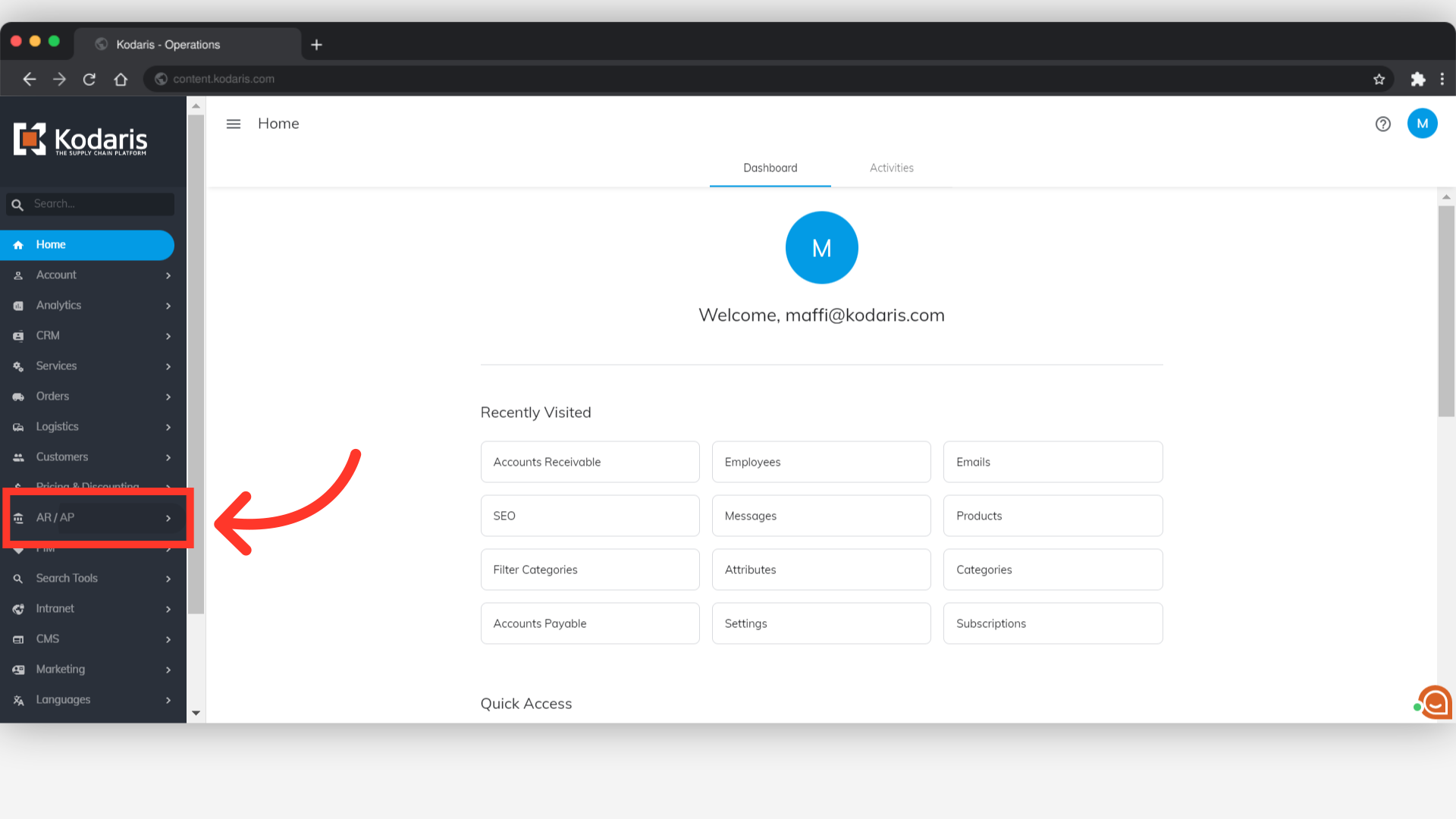
Then, click "Accounts Receivable". In order to access "Accounts Receivable" you will need to be set up either as an "administrator" or a "superuser", or “accountant” or have the following roles: "paymentEdit and paymentView”.
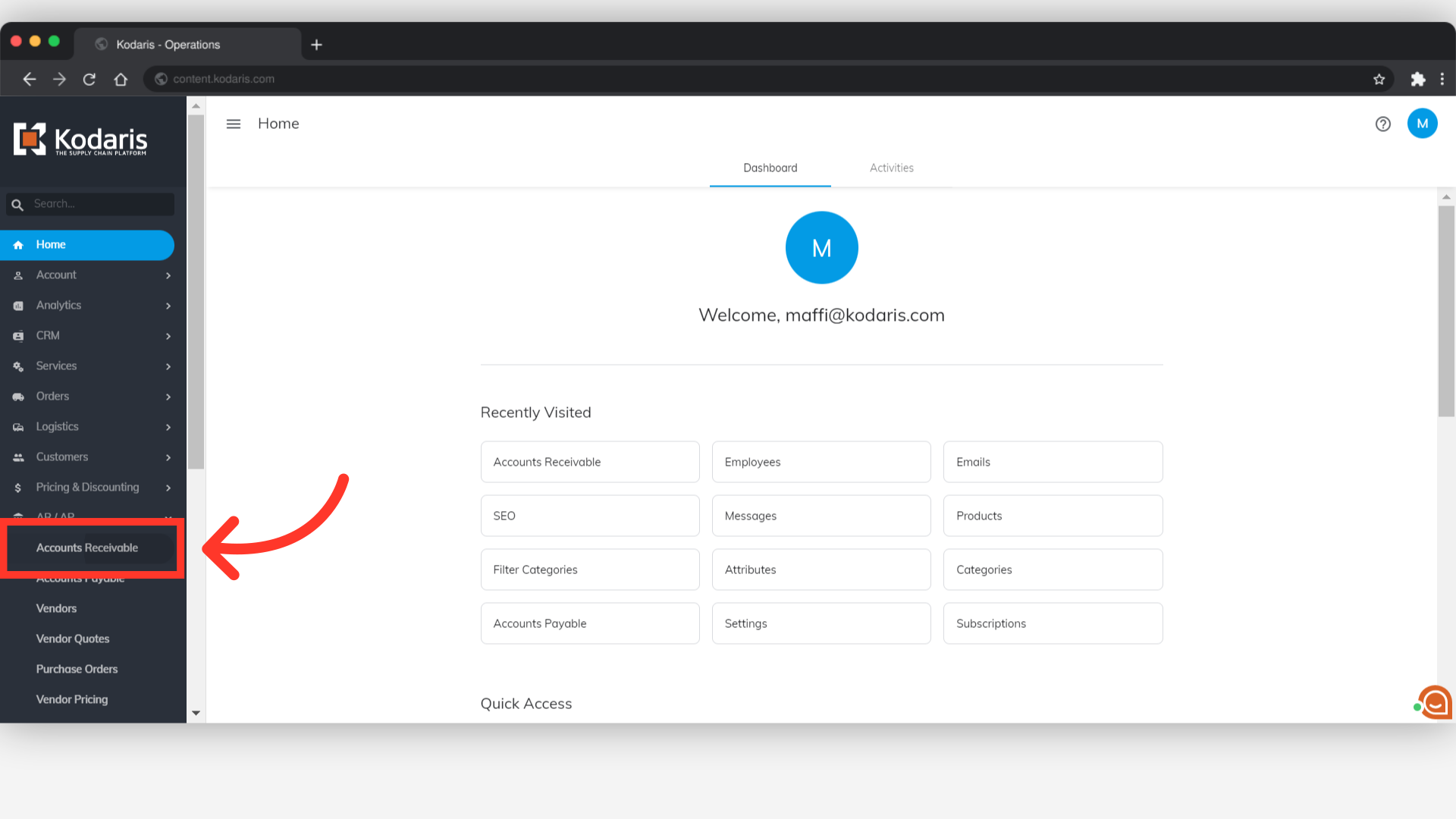
Here on the Accounts Receivable screen, click the "Txn Type" filter.

Select "Scheduled Payments" from the options.
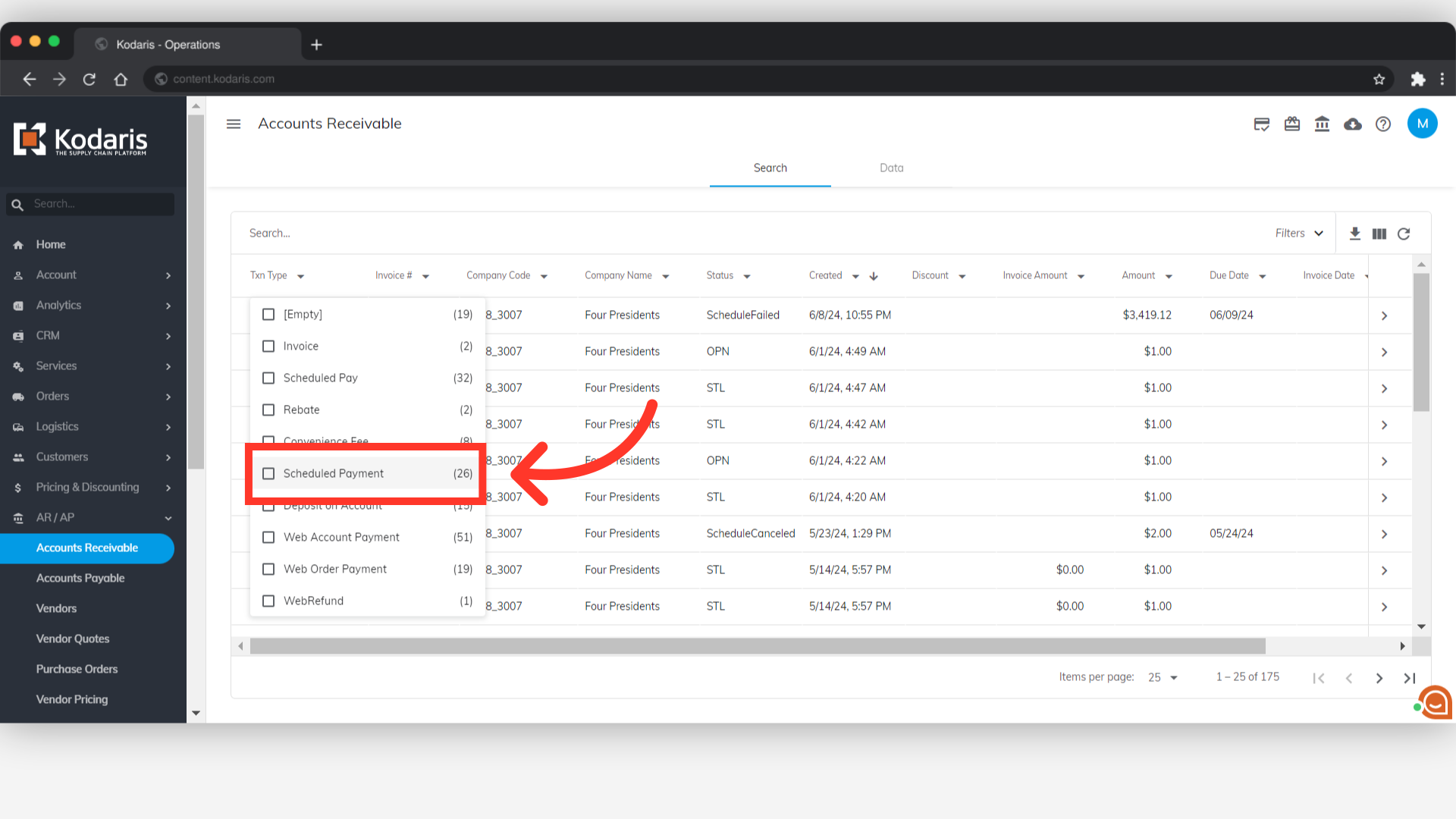
Next, click the "Status" filter.
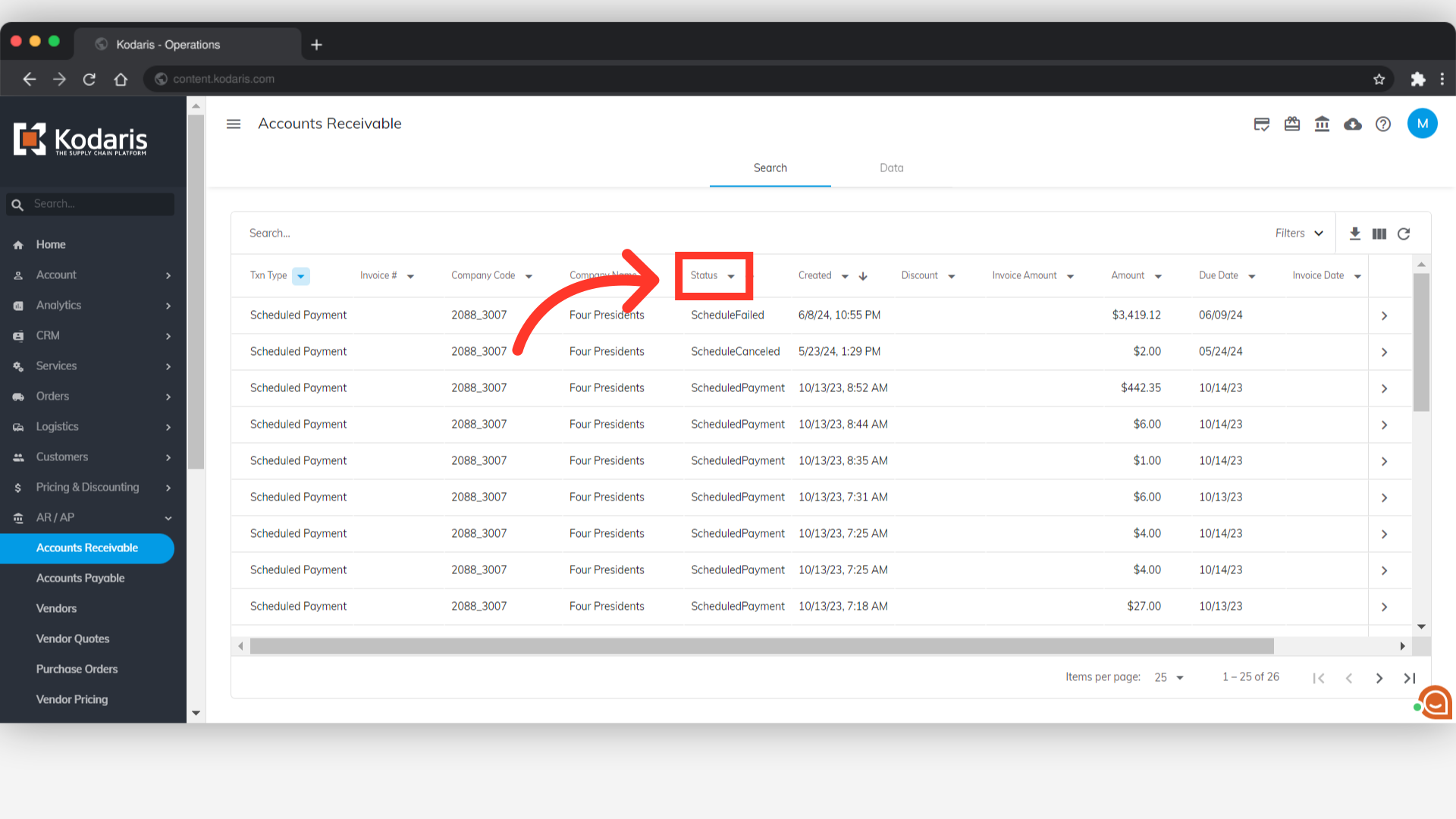
Then, select "ScheduleFailed" from the options.
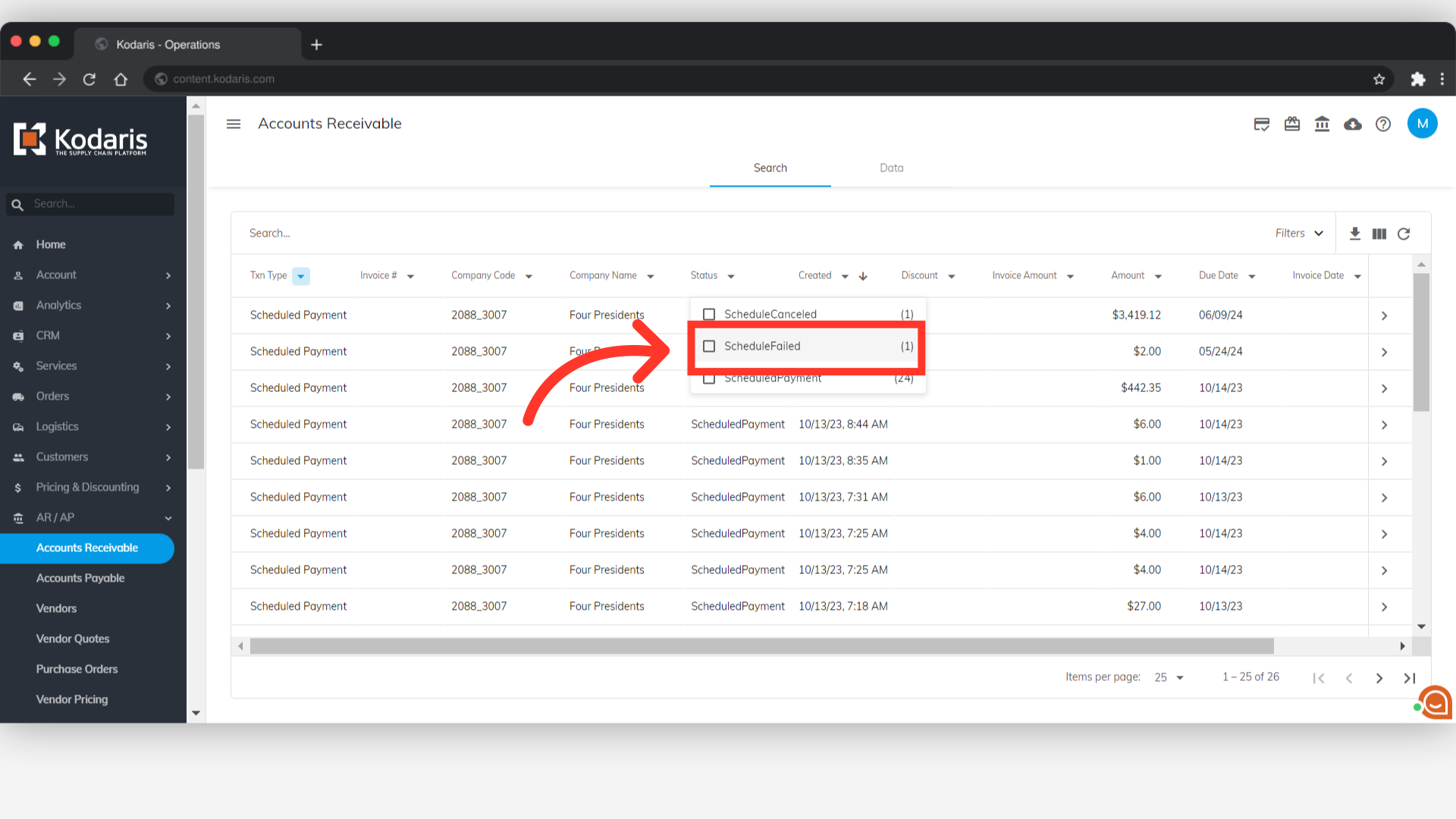
These selections will enable you to view the failed scheduled payments. Click on the "more details" icon of the payment you would like to view.

Select the "Internal Comments" tab and you will see a comment has been added indicating the payment has failed and why.
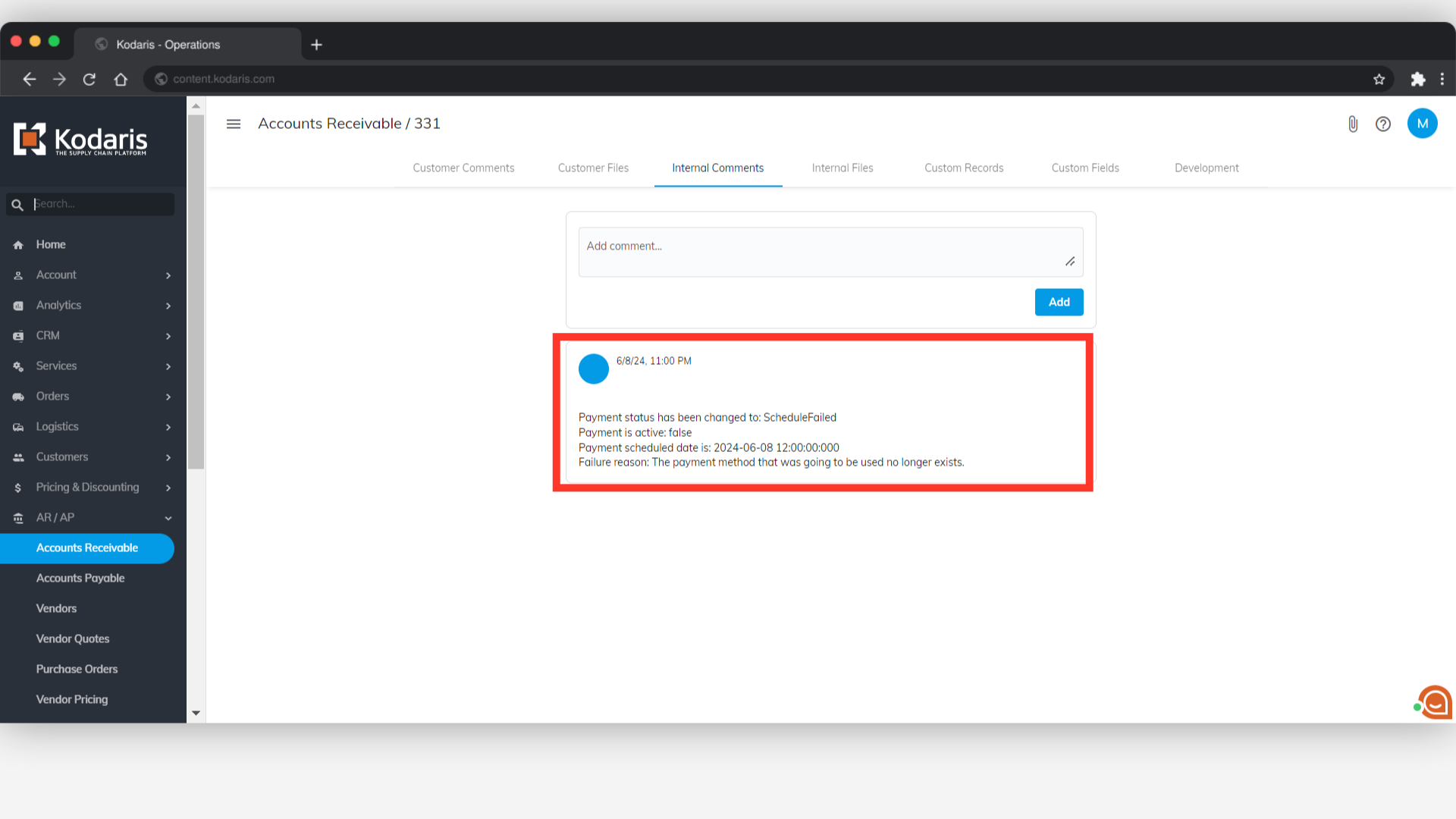
Another way to check for scheduled payment errors, is by checking the "System Event Information" screen under "System" in the operations portal. An event will also be added indicating why the payment failed. Search for "System" by using the menu search.

Then, click "System Event Information". In order to access "System Event Information" you will need to be set up either as an “administrator” or a “superuser”.

Select the date of the failed scheduled payment.

Select the failed scheduled payment file to view the error log.
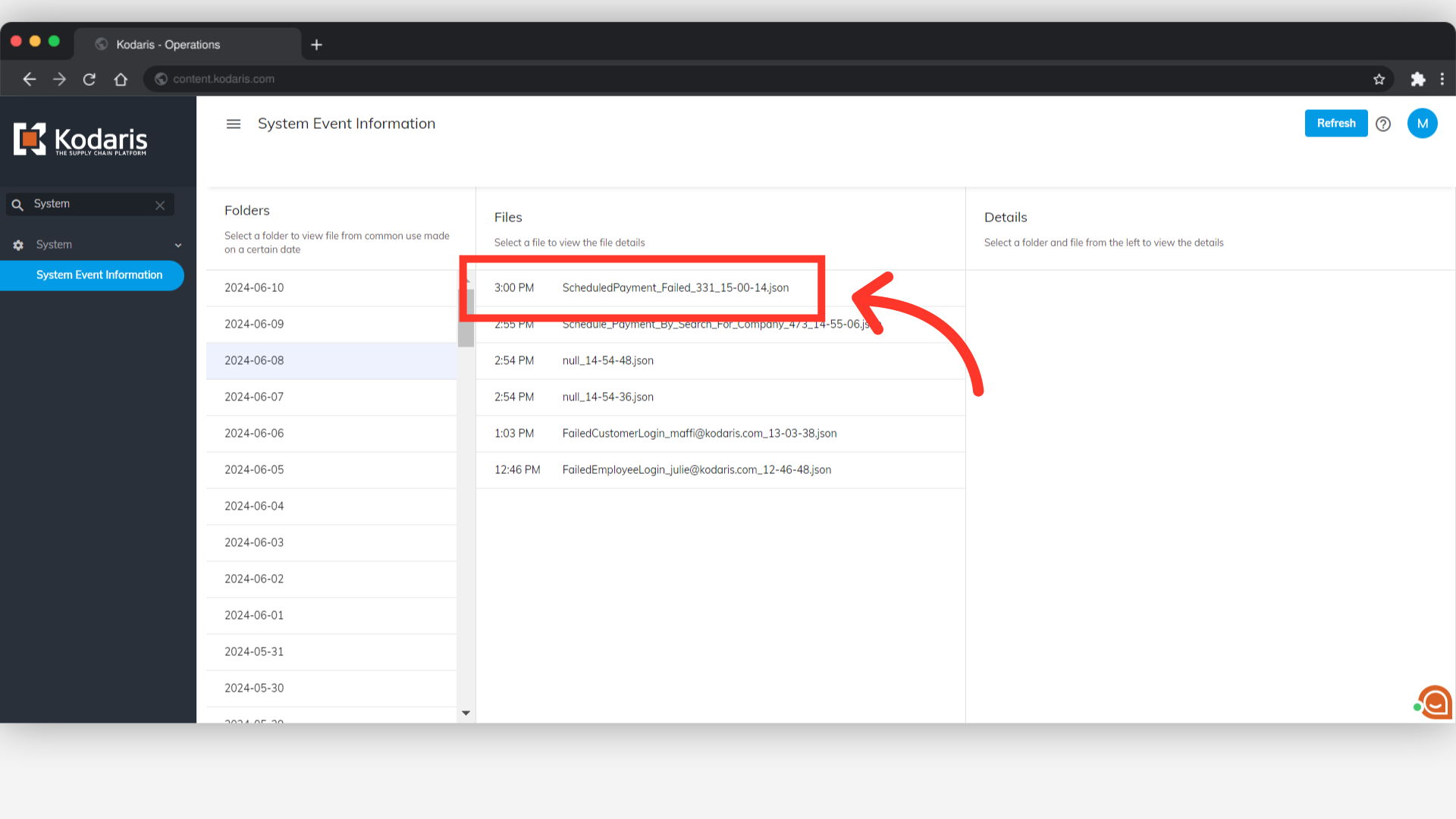
Details indicating why the scheduled payment failed will be shown on the screen.
